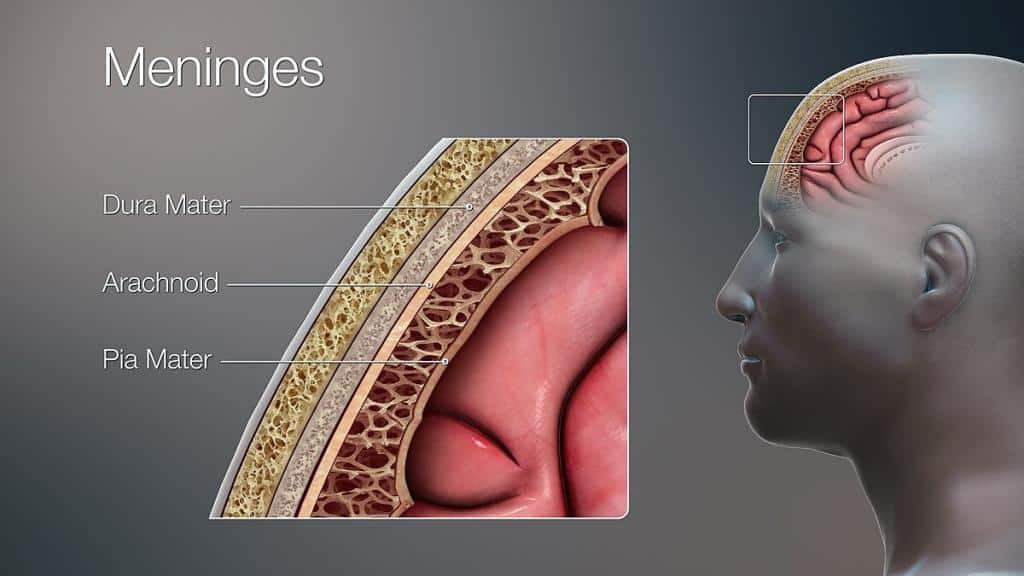
Meningitis is a common disease amongst babies, children, young adults and adults too. Meningitis can be life-threatening if not treated fast enough. The vaccine is available for people at Westbury Chemist Streatham.
What is Meningitis?

A bit of interesting science
There are three protective membranes that surround our brain and these are as follows:
1. Dura mater
2. Arachnoid mater
3. Pia mater
Is Meningitis Contagious?
Not in all cases. Bacterial and viral Meningitis can spread from coughing, sharing utensils, kissing (exchange of saliva) and sneezing. Sharing infected droplets of body fluids can be shared in the form of sneezing and coughing. Ensuring you wash your hands prevents this from happening.
Symptoms of Meningitis
- High temperature or fever
- Headaches
- Sick
- Rashes. NHS provide the advice that if the rash doesn’t fade when a glass is rolled over it, it could be signs of meningitis. It will not always be the case that rashes develop either.
- Stiff neck
- Irritated by bright lights
- Drowsiness or unresponsiveness
- Seizures or fits
There is no direct order to this list of symptoms. People can experience this arbitrarily.
Symptoms of Meningitis in babies
- High fever
- Constant crying
- Excessive sleepiness or irritability
- Difficulty waking from sleep
- Inactivity or sluggishness
- Not waking to eat
- Poor feeding
- Vomiting
- A bulge in the soft spot on top of a baby’s head (fontanel)
- Stiffness in the body and neck
Diagnosing Meningitis
The procedure
Prevention of the Meningitis Disease
- Washing Your Hands
Washing your hands thoroughly can help prevent the spreading of germs. Children should wash their hands properly before eating, using the toilet, visiting crowded public places and petting animals. Use warm temperature water and anti-bacterial hand wash, use recommended hand washing techniques for thorough cleaning. - Stop Sharing
Maintaining good hygiene would imply not sharing drinks, utensils, toothbrushes, lipsticks and lip balms. Children have a kind nature, they’re open to sharing but that’s okay for toys not for the above-listed items. - Strengthening the Immune System
Eating well and having a balance of your vitamins, fitness and enough rest can help prevent contracting the disease. - Covering Your Mouth
If you have a sneeze or cough coming through, ensure to cover your mouth and immediately wash or sanitise your hands before touching anything else. This will stop the spread of germs and bacteria. Remember the source of meningitis is bacteria passing into your protective membrane.
Meningitis ACWY Vaccination
Who Needs The MenACWY Vaccine?
Where To Get The Meningitis Vaccine?
Meningitis Serious Side Effects
How Long Does The Vaccine Last?
Meningitis Rash
- tiny red, pink, brown, or purple pinprick marks (petechiae) on the skin
- purple bruise-like marks
- blotchy-appearing areas of skin
- pale or mottled areas of skin
Meningitis FAQs
There are a number of symptoms that can be experienced with meningitis. Find some below:
-
High fever
-
Constant crying
-
Excessive sleepiness or irritability
-
Difficulty waking from sleep
-
Inactivity or sluggishness
-
Not waking to eat
Meningitis viral and bacterial can result in deaths in a matter of hours. People who do recover from meningitis tend to have difficulties thereafter. To name a few:
- Permanent disabilities
- Brain damage
- Learning disabilities
- Hearing disabilities and more
Commonly babies, children, young adults and sometimes adults too. Babies, children and teens are at the highest risk. It’s important to maintain good hygiene habits to prevent it.
Yes. Close contact and the transaction of a kiss can transmit meningitis as well as coughing and sneezing without basic hygiene practices.
Subscribe to our Newsletter
Join our Westbury Chemist newsletter to stay up to date with the latest travel information.
Book Your Meningitis Vaccine
Westbury Chemist, Streatham offers a vaccination for Meningitis. Book your vaccination today

